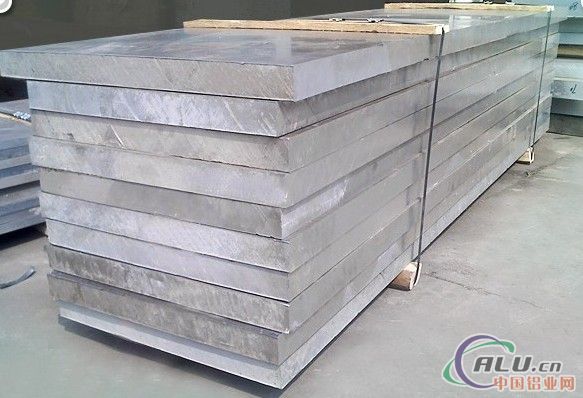鋁板的理論重量計算公式如下:
The theoretical weight calculation formula for aluminum plates is as follows:
重量(單位:千克)= 長(cháng)度(單位:毫米)× 寬度(單位:毫米)× 厚度(單位:毫米)× 密度(單位:千克/立方米)
Weight in kilograms=length in millimeters × Width in millimeters × Thickness in millimeters × Density in kilograms per cubic meter
其中��,密度是鋁的密度����,一般為2.7克/立方厘米或2700千克/立方米���。
Among them, density is the density of aluminum, typically 2.7 grams per cubic centimeter or 2700 kilograms per cubic meter.
需要注意的是����,這只是鋁板的理論重量����,實(shí)際重量可能會(huì )因為制造過(guò)程和材質(zhì)差異而有所偏差���。另外��,如果鋁板存在其他形狀或結構�,例如彎曲��、孔洞等�,也需要進(jìn)行額外的計算來(lái)得到準確的重量�。
It should be noted that this is only the theoretical weight of the aluminum plate, and the actual weight may vary due to differences in manufacturing process and materials. In addition, if the aluminum plate has other shapes or structures, such as bending, holes, etc., additional calculations are also required to obtain accurate weight.
怎樣計算鋁板重量�?
How to calculate the weight of aluminum plates?
重量計算公式:m=ρ*V(m是質(zhì)量���,ρ是密度�,V是體積)不一樣合金的鋁板密度(ρ)是不一樣的�����,在這里以3mm*1000*2023的1060鋁板(也稱(chēng)純鋁板)作為例子����。這張鋁板的重量(m)=2.71(密度)*3(厚度/毫米)*1(寬度/米)*2(長(cháng)度/米)=16.26kg�����。
Weight calculation formula: m= ρ* V (m is the mass, ρ Density, V is volume) The density of aluminum plates with different alloys( ρ) It's different. Here, we take a 3mm * 1000 * 2023 1060 aluminum plate (also known as pure aluminum plate) as an example. The weight of this aluminum plate (m)=2.71 (density) * 3 (thickness/mm) * 1 (width/meter) * 2 (length/meter)=16.26kg.

純鋁的密度(ρ=2.7g/cm3)比較小����,大概是鐵的1/3���。但是�,純鋁的強度很低��,退火狀態(tài)σb值約為8kgf/mm2��,故不要作結構材料�����。
Density of pure aluminum( ρ= 2.7g/cm3) is relatively small, about one-third of iron. However, the strength of pure aluminum is very low and in an annealed state σ The value of b is approximately 8kgf/mm2, so it should not be used as a structural material.
通過(guò)長(cháng)時(shí)間的生產(chǎn)實(shí)踐和科學(xué)實(shí)驗�����,大家漸漸以加入合金元素及運用熱處理等方式來(lái)強化鋁����,這個(gè)問(wèn)題就得到了一系列的鋁合金��。
Through long-term production practice and scientific experiments, people have gradually strengthened aluminum by adding alloying elements and using heat treatment methods, resulting in a series of aluminum alloys.
添加一定元素形成的合金在保持純鋁質(zhì)輕等優(yōu)點(diǎn)的同時(shí)還能具有非常高的強度�,σb值分別可達24~60kgf/mm2����。
The alloy formed by adding certain elements can maintain the advantages of pure aluminum being lightweight while also possessing very high strength, σ The b values can reach 24-60kgf/mm2, respectively.
這樣讓其“比強度”(強度與比重的比值σb/ρ)勝過(guò)不少合金鋼�,成為理想的結構材料��,廣泛用于機械制造�、運輸機械�����、動(dòng)力機械及航空工業(yè)等方面�����,飛機的機身����、蒙皮����、壓氣機等常以鋁合金制造��,以減輕自重���。
This makes it "specific strength" (the ratio of strength to specific gravity) σ B/ ρ) Compared to many alloy steels, it has become an ideal structural material and is widely used in mechanical manufacturing, transportation machinery, power machinery, and aviation industry. The fuselage, skin, and compressor of aircraft are often made of aluminum alloy to reduce self weight.

